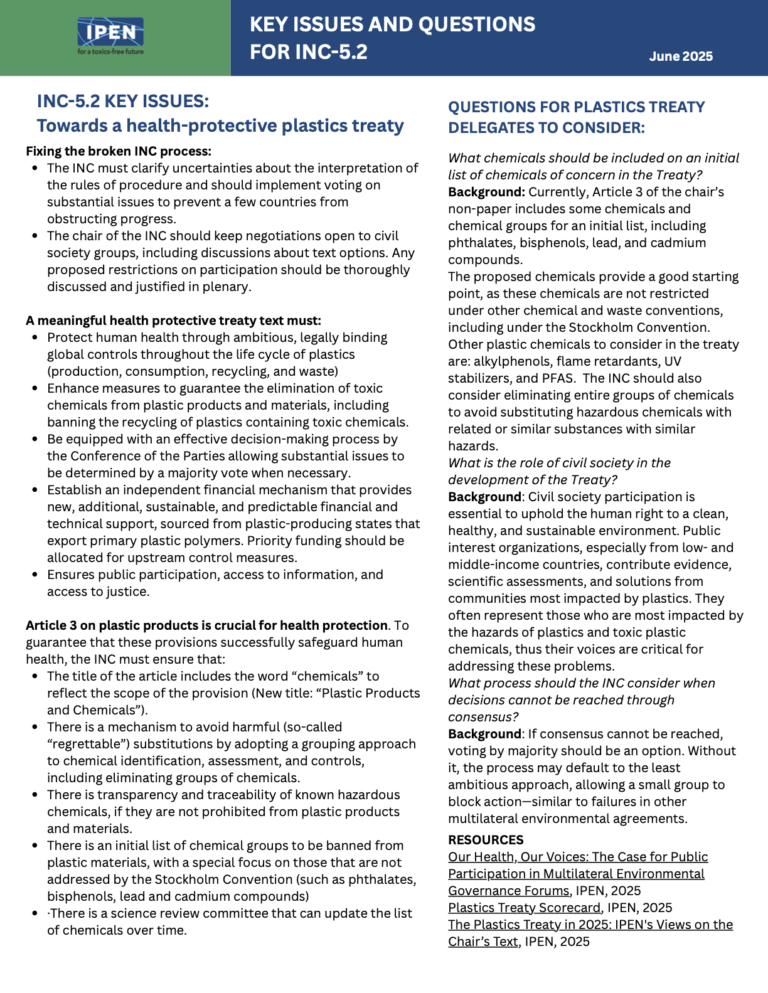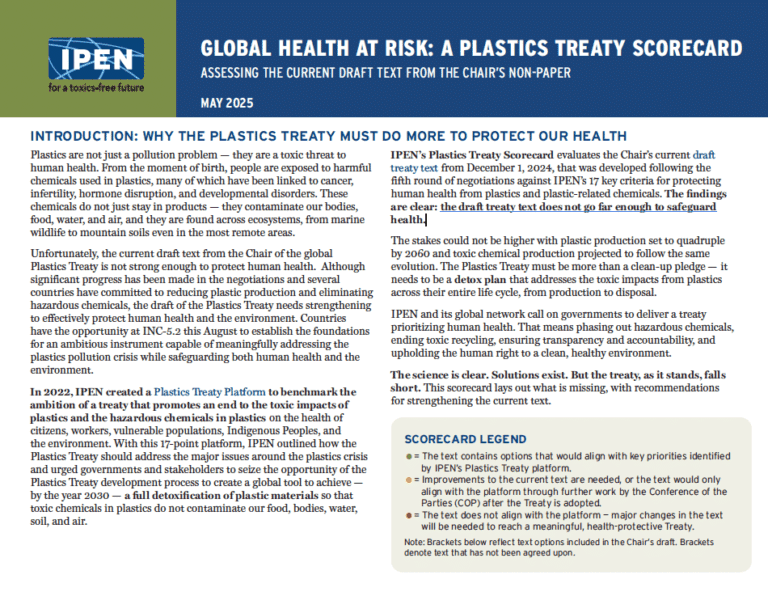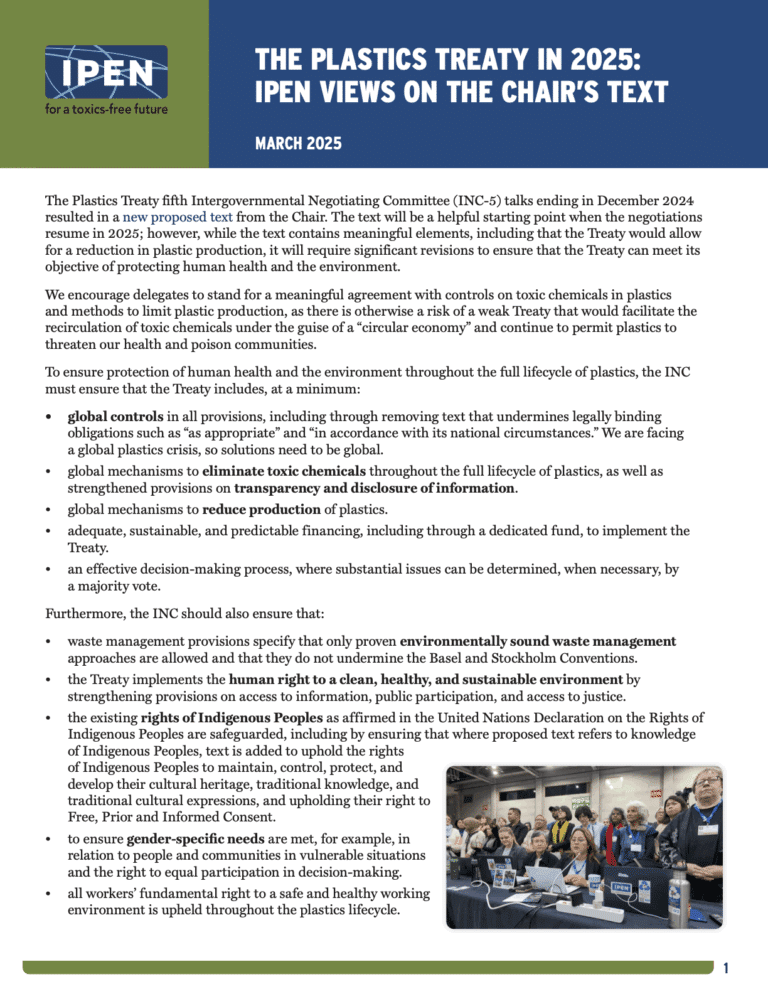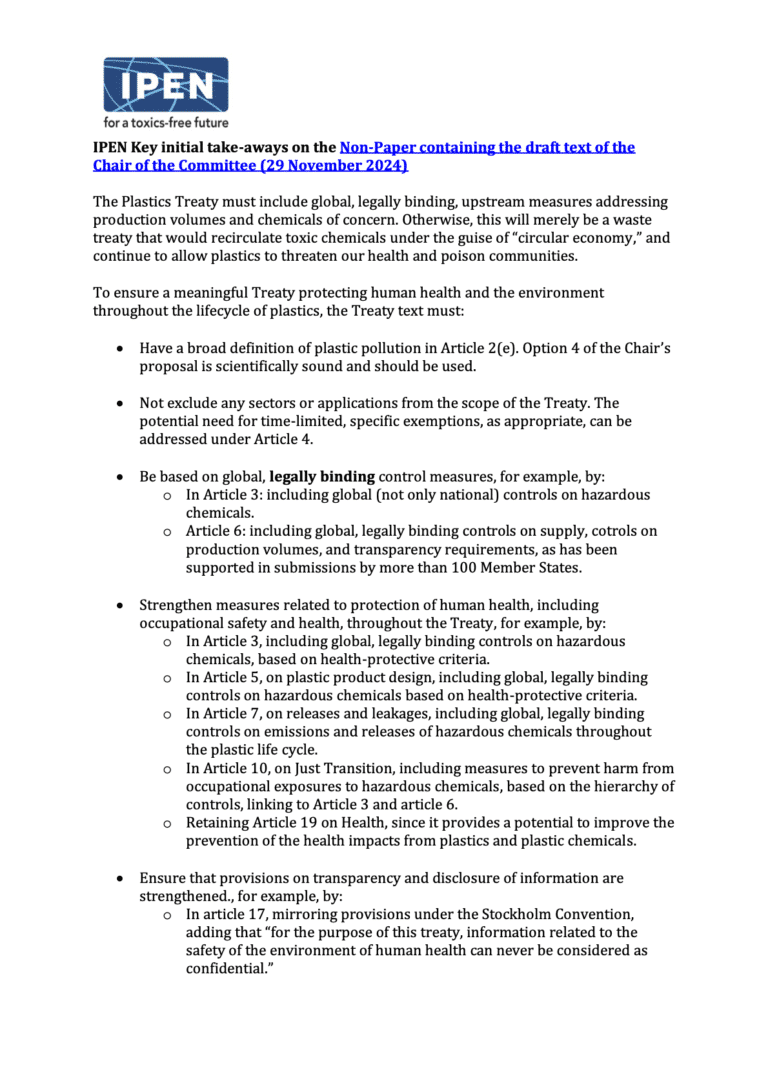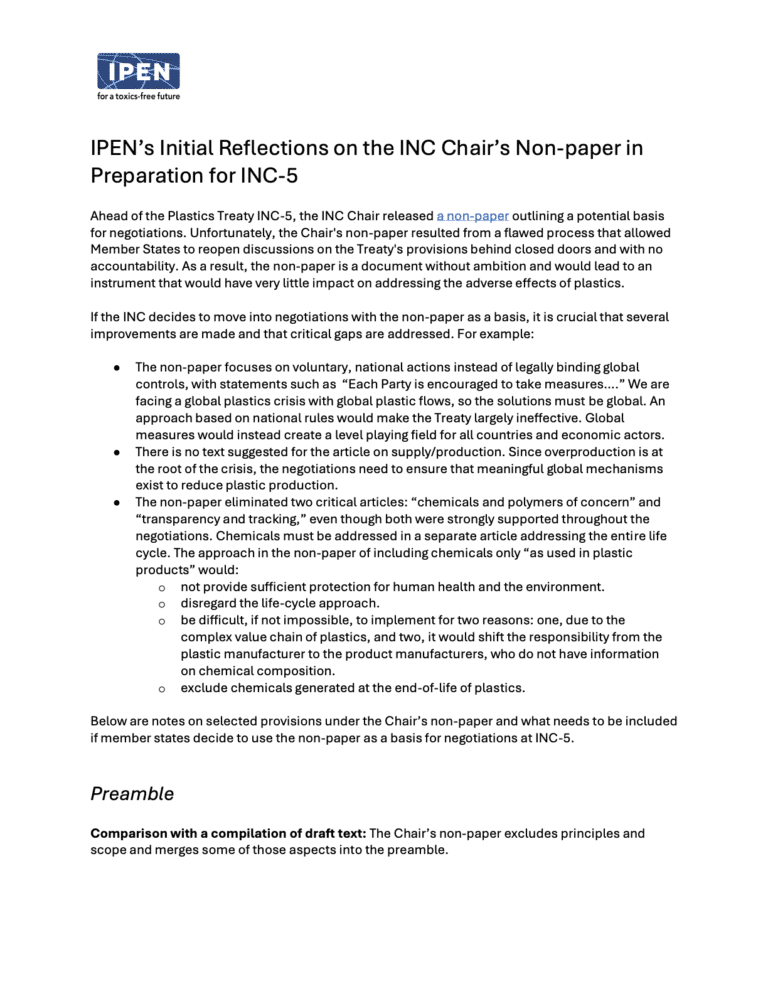“Just wait till next year!” goes the slogan often attributed...Read More
Busan, November 25 to December 1, 2024
The fifth meeting of the Intergovernmental Negotiating Committee (INC-5) of the Plastics Treaty was held from November 25 to December 1, 2024, in Busan, Republic of Korea.
See IPEN’s INC-5 closing statement here.
Also see our brief in response to the Chair’s November 29 non-paper here, our response to the Chair’s non-paper prior to INC-5 here, and see our statement following INC-4.
Plastics Treaty Resources
The Plastic Treaty negotiations are scheduled to continue through 2025, with regular sessions of the Intergovernmental Negotiating Committee (INC).
For each negotiating session, IPEN develops policy documents on the meeting agenda and emerging issues, as well as briefing papers, reports, and other materials.
Our Quick Views are available in several languages.
Plastics Poison the Workplace and Toxic Exposures to Plastics Treaty Stakeholders
IPEN member EARTH in Thailand coordinated with plastic recycling workers and plastic waste workers to assess their exposures to chemicals in plastics. We also engaged global participants connected to the Plastics Treaty negotiations who work in settings without significant occupational exposure to plastics to assess their exposures to toxic plastic chemicals.
Together the findings show that all workers experienced chemical exposures, with plastic waste and recycling workers exposed to more chemicals than the other workers. Click below to see both reports.
You can also read about the studies in The New York Times.

IPEN's Global Actions to End Toxic Plastics
The Plastic Industry's Muddled Math
Increasing plastic recycling has been presented as a solution to the plastic crisis, but the projected recycling numbers are often based on false assumptions and misleading statistics. These are often intentionally presented to oversell the capacity and promise of plastic recycling.
In this research brief, we summarize the science on the limitations of plastic recycling and the skewed statistics that are often used to oversell its potential.


A Small Slice of the Toxic Pie
Plastics are chemicals, and of the over 16,000 chemicals linked to plastics, less than 1% are regulated worldwide throughout their full life cycles. Yet, the non-paper containing compromise text suggestions, proposed by the Chair of the negotiation process, suggests that plastic chemicals could effectively be regulated as “chemicals in plastic products” even though toxic plastic chemicals can be released during production, use, and disposal, not only during the product stage.
This brief explains why narrowly focusing on the plastic product stage would fail to address the broader environmental and health impacts associated with plastics throughout their entire life cycle.
Refuse Derived Fuel: Hazardous Plastic Waste in Disguise
As the plastic waste crisis deepens and countries around the world agree to restrict plastic waste exports and tighten controls on the movement of waste, at least one form of plastic waste has largely avoided trade regulations. Refuse derived fuel (RDF) is up to 50% mixed plastic waste yet is rarely subject to trade rules, despite being hazardous waste that is destined to burn in cement kilns and incinerators. This briefing covers the key issues surrounding the RDF trade and why it should be regulated and eventually prohibited. IPEN members have also produced country-based reports with research on the situation around RDF in their nations.
Click below to read the briefing, with a link to the country-based reports.

IPEN in the News
Yuyun Ismawati on DW
IPEN global Co-chair Yuyun Ismawati speaks to German media DW about the status of the INC-5 negotiations.
IPEN in INC-5 news
IPEN Co-chair Pamela Miller speaks with San Francisco Bay Area...Read More
From water bottles and food wrappers to microplastic in the...Read More
IPEN Executive Director Bjorn Beeler talks with BNN/Bloomberg News about...Read More
You might have missed it amid the noise of the...Read More
What was supposed to be the final round of United...Read More
Negotiations to produce a legally binding treaty to curb the...Read More
A week of tense negotiations to draft a legally binding...Read More
Negotiators working on a treaty to address the global crisis...Read More
As international talks continue this week, a dozen U.N. officials...Read More
Study Finds Workers in Thailand are Exposed to Phthalates, Toxic...Read More
Delegates from more than 170 nations are gathered in Busan...Read More
The last round of negotiations for a global treaty addressing...Read More
“Plastics pollution exacerbates the impacts of all [nine] planetary boundaries,”...Read More
Nations gathered in Busan, South Korea have a week to...Read More
On November 25, delegates from around the globe will gather...Read More
Negotiators from around the globe are descending on Busan, South...Read More
Two years in, delegates from more than 175 countries working...Read More
The Endocrine Society and IPEN provide a comprehensive update on the science of endocrine disrupting chemicals (EDCs), which may be particularly harmful during the fetal and infant stages. The report examines bisphenols and phthalates, two toxic chemical groups found in many plastics, and includes a special feature highlighting EDC exposures throughout the plastic life cycle.
Children's Health Threats from Plastic Chemicals
Project TENDR, an alliance of 50+ leading scientists, health professionals, and advocates, share a briefing for delegates outlining how common exposures to plastic and its toxic chemicals are harming children’s brain development. They summarize the scientific evidence and offer policy recommendations to strengthen the Plastics Treaty to protect children’s health.
Images from INC-5











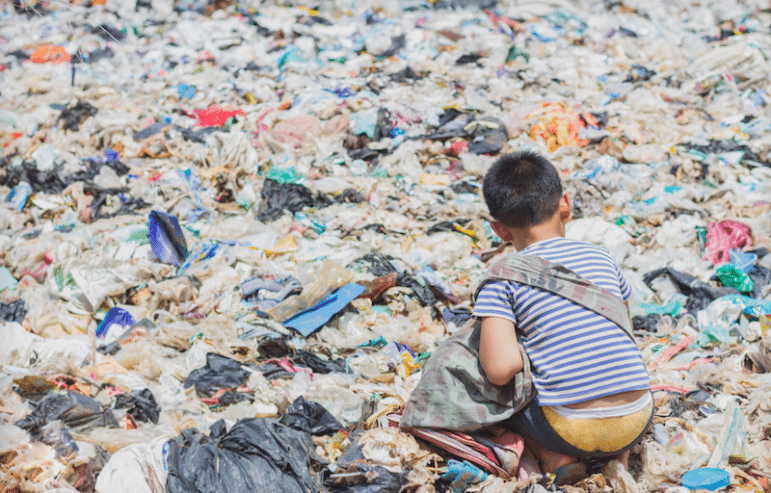
Troubling Toxics: Eliminating Harmful Plastic Chemicals Through the Plastics Treaty
The IPEN briefing Troubling Toxics discusses approaches in the Plastics Treaty to establish criteria for a negative list of toxic chemicals associated with the production, use, and disposal of plastics. IPEN calls for a strategy that combines a negative list of toxic chemicals to eliminate from plastics with an approach that prohibits marketing chemicals when there is no available toxicity data.


















